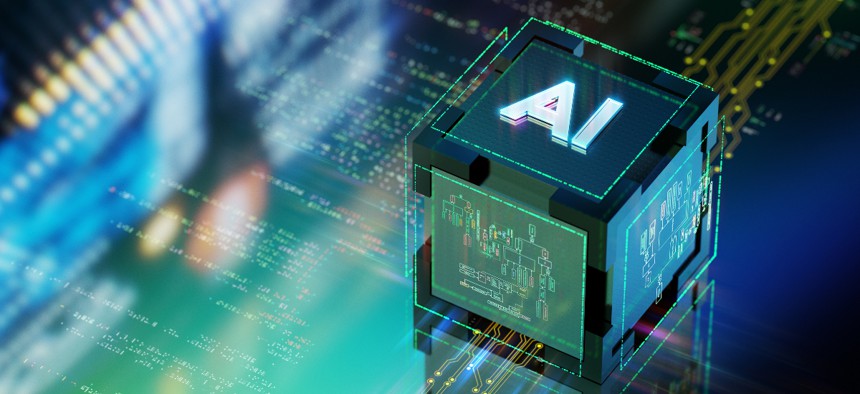Inside the AI angle of ManTech's pivot

Gettyimages.com / Da-kuk
The company's new data analytics and artificial intelligence practice will look to help agencies get a handle on their data before operationalizing AI.
ManTech is in the midst of a pivot with respect to how it does engineering and it is taking place amid the increasing emphasis, plus embedding, of artificial intelligence into everything.
Rather than basing much of the engineering activities around individual opportunities, the technology integrator is moving to an applied research and engineering approach so it can have a more horizontal view of what agencies are facing.
Our nation has a scale problem with humans, that makes it difficult for the government to support all the mission demands that it has, ManTech's chief innovation officer Eric Brown said. "It's an imperative that the nation implements artificial intelligence, analytics and intelligent automation all across the landscape."
For ManTech, that imperative led the company to stand up a new data analytics and AI practice that will house much of the company's consulting and technology acceleration work in those areas. Engineering services are naturally a part of the practice's larger offering as well.
Brown said that through this practice, ManTech is looking to collaborate with customers on starting with the first question of the problem set they are trying to work through.
Often times, the exercise begins with a readiness assessment because of the volumes of data agencies have. The U.S. government collective has more data to work with than any other enterprise in the world, so getting a handle on it is a challenge.
As Brown sees it, the operationalization of data must come first before doing the same for AI.
"If you don't have a good gravel of your data, it's hard to actually do an assessment and try to develop proofs of concept, or to create augmented or automated processes," Brown told me. "You have to understand the infrastructure, what capabilities they have and basically helping to meet the client where they're at, in order for them to kind of create a series of prototypes to deliver an operational capability at some point."
The nature of being a federal systems integrator also means that ManTech will reach into the larger technology ecosystem of partners, many of whom are commercial and global.
Case in point: ManTech's other new major practice it announced this month. The ManTech Google Workspace Practice will be home to both companies' joint efforts to jumpstart rapid innovation and share best practices for using Google Cloud for workplace productivity and AI functions.
Brown pointed out that ManTech works with all of the hyperscale cloud providers that have some government footprint. Customers are also adopting different workloads because of the data that they and integrators like ManTech deal with.
"The environmental context of knowing where each one of the cloud providers are in terms of operational parity or future parity between the different regions is something we we stayed very close with," Brown said.
ManTech's technology scouting function also means going out beyond just the high-profile names. The company's partnership with Georgia Tech's Advanced Technology Development Center also unlocks access into the latter's incubator system, which also means connections with newer companies.
A substantial portion of companies that are backed by incubators are two years old or younger, but whose creations have shown promise for dual use across government and commercial markets.
"That's where it becomes really interesting: we're bringing a fresh set of newer and emerging technologies to our customers, but we're also putting in the security and precision and engineering rigor," Brown said.
"It's basically being the bridge between technology and incubation to how we actually leverage it into the esoteric old way of thinking and trying to adopt emerging technology."
NEXT STORY: Tetra Tech extends FAA footprint via acquisition

